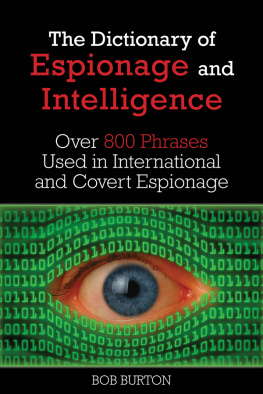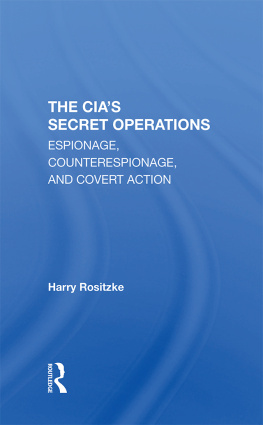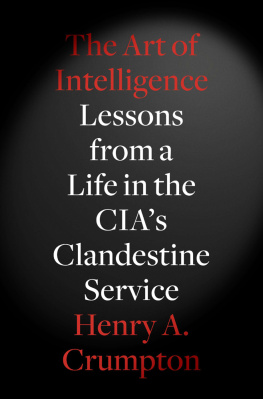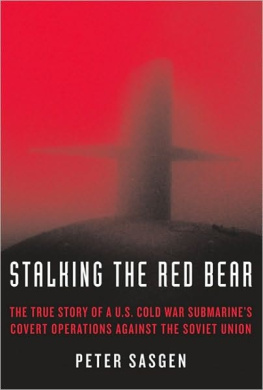Copyright 2014 by Bob Burton
All rights reserved. No part of this book may be reproduced in any manner without the express written consent of the publisher, except in the case of brief excerpts in critical reviews or articles. All inquiries should be addressed to Skyhorse Publishing, 307 West 36th Street, 11th Floor, New York, NY 10018.
Skyhorse Publishing books may be purchased in bulk at special discounts for sales promotion, corporate gifts, fund-raising, or educational purposes. Special editions can also be created to specifications. For details, contact the Special Sales Department, Skyhorse Publishing, 307 West 36th Street, 11th Floor, New York, NY 10018 or .
Skyhorse and Skyhorse Publishing are registered trademarks of Skyhorse Publishing, Inc., a Delaware corporation.
Visit our website at www.skyhorsepublishing.com.
10 9 8 7 6 5 4 3 2 1
Library of Congress Cataloging-in-Publication Data is available on file.
Cover design by Danielle Ceccolini
Cover photo credit Thinkstock
ISBN: 978-1-62914-212-8
Printed in the United States of America
Dedicated to Lesley Koelsch of Santa Barbara, California
Lesleys dedication to the pursuit of arcane terminology and insider slang of one of the more close held professions in the worlds history made all this possible.
Lesley now rests in peace an eternal peace, yet she will be long remembered by her friends and love.
God bless you, Lesley.
C ONTENTS
F OREWORD
The elite professions of our societylaw and medicine are the second and third worst offendershave since the beginning developed their own vocabularies, called cants , so that ordinary people cant understand what theyre talking about.
The worst offender in this area is what is euphemistically known as the intelligence community. My dictionary defines community as sharing, participation and fellowship.1 The one thing intelligence people do not do is share, and frankly, theyre not big on participation and fellowship, either.
If your life depends on as few people as possible knowing what you are doing, you have a tendency to keep your mouth shut. And when youre talking to people youre working with, to use a cant that no one else understands.
The result of this is that when manyperhaps mostwriters write about what I consider the most elite profession of them all, intelligence, they have no idea of the cant.
To solve this social problem, Bob Burton has compiled this tome.
Who is Burton to do this?
Every once in a great while, Hollywood actually makes a film about the world few people know or talk about that doesnt cause intelligence people to snicker all the way through it. One such film was Proof of Life starring Russell Crowe. By the time Crowe, playing the role of an ex-SAS officer trying to get back an American kidnapped by Latin American guerrillas, was ready to go after the bad guys, I was on the edge of my seat.
When Crowe rappelled down from a chopper into the jungle, I said aloud, Go get em, Burton.
From his days as a member of the Marine Corps Force Recon to his status now as one of the Worlds Better Bounty Hunters and Hostage Rescuer emeritus, and without question the most respected man in counterespionage, Bob Burton has been there, done that, and has the T-shirt.
And going against what I said before about fellowship, Bob Burton has made friendsand kept themwith the heavy hitters in just about every intelligence agency in the world, from our CIA and FBI to Mossad and MI6 and a host of others.
I was talking one time to a Medal of Honor winner at a Special Operations Association reunion in Las Vegas when Bob walked in with G. Gordon Liddy.
My God, the Medal of Honor recipient said, in awe, stopping in midsentence. Isnt that Bob Burton?
And these people contributed to this book, explaining in detail what certain terminology meant, and where it came from, about subjects they wouldnt talk about to anyone else.
Im now writing a novel about intelligence. An early version of Top Secret is five inches from my keyboard, and will be there until I finish.
Thank you, Bob Burton.
W.E.B. Griffin
Life Member, Special Operations Association
Honorary Life Member, Special Forces Association
A CKNOWLEDGMENTS
Any book of this nature depends upon the goodwill of many people in sensitive positions. Often, security precautions will create an overly security-conscious mentality, guarding even the jargon and terminology of the trade.
In accumulating these entries I had to earn and communicate goodwill to the various security officers, active and retired, that I dealt with.
Special thanks must go to Mr. Jack Mathews, a former senior official with the CIA. Mr. Mathews was instrumental from the beginning of this book to the final pages in assisting me with some of the almost unverifiable words that I ran across. Thanks are also due to Mr. Richard Gookin, associate chief of protocol with the US Department of State for assistance on the expulsion procedure of a captured foreign espionage agent.
Special thanks must also go to the many active duty officers of the various intelligence agencies alluded to in this book. Their wish to remain nameless will be honored but they shall not go thankless.
A mystery was cleared up for me by Mr. Donald Stigers, chief, Security Branch, Office of Intelligence Support, Department of State, regarding the Bureau of Intelligence and Research. Many thanks to Mr. Stigers. The security officers at several foreign embassies proved helpful with words belonging to their own services and clarification of in-house slang. They wish to remain nameless and will be so honored. Ultimate responsibility, however, remains on my shoulders for any and all errors.
I NTRODUCTION
Few professional groups have developed their own language as eclectically as has the intelligence-gathering communitythe spies, spooks and espionage agents. The intelligence community has borrowed terms from the computer industry, the space program and the legal, medical and scientific professions, and has given them new meaning. Such words and phrases as compromise, crypto, HUMINT, ELINT, source, sourced, TOP SECRET, COSMIC TOP SECRET and topographic crest are all used in daily conversation by the men and women that make up the agencies and military organizations charged with the tasks of learning our enemies secrets and preventing hostile forces from learning ours. These terms come from the military-spy-science connection of the Office of Strategic Services, the Special Operations Executive and other intelligence and paramilitary operations of World War II.
Conversely, much of the intelligence trades semantics has entered the civilian community. Cover and cover story are now suspected by most parents when their child arrives late for dinner with a plausible excuse for his tardiness. And, of course, the child feels burnt by the parents.
The language of the analyst may differ from that of the field officer, the spy, only in that each would have his own terminology within the structure of the intelligence agency. In management, the career officer, desk and control will each have some terminology of his own. And let us not overlook the singleton , the agent who works alone.
While each facet of the intelligence agency must be aware of the others linguistic nuances in order to communicate, the Directorate of Science and Technology will have some words that wont readily be recognized by the other CIA directorates or operations.
This, however, is not exclusively a book of CIA jargon. The special disciplines of codes and ciphers, special operations, and high-risk security have been incorporated throughout the pages.








